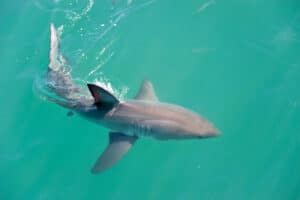Continue reading for our analysis...
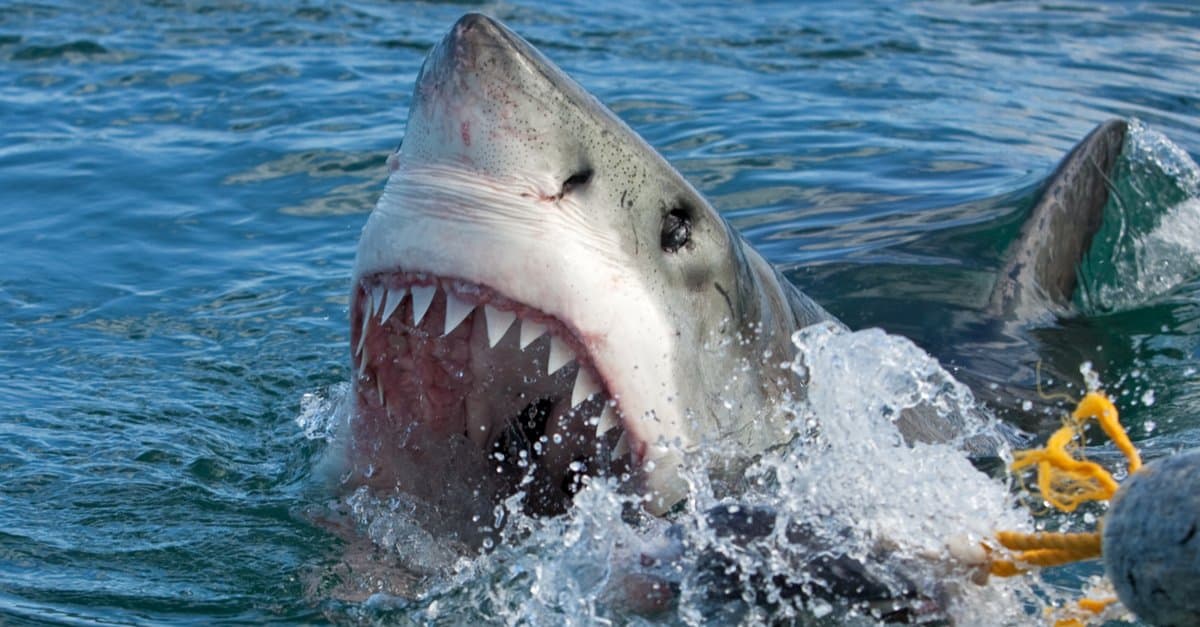
A fisherman clad in a blue shirt and trunks screams to the crew of a charter boat off the coast of Tybee Island. He is about to engage in an epic battle with a great white near Savannah.
“Shark! We’re tight!”
He knows he has a shark on his line, and he wants to do everything possible to bring it onboard. He begins steadily reeling in the fish on a large fishing rod. The fisherman maneuvers around the boat, going from one spot to another so he can keep reeling.
Disbelief settles in as he realizes that he’s in for the fight of a lifetime.
“No way. No way.”
A crew member assures him that this is actually happening. The footage cuts while the fisher takes off his shirt and continues to reel. It’s not long until the shark makes its first appearance near the surface of the water. The people on the vessel cheer and the fisher leaps up and down before settling back in for another round.
He paces the boat with the fishing pole in hand, going from stern to bow and bow to stern. He gets advice and help from other people on the vessel. Halfway through the video, it switches from a third-person view to a first-person view. The fisherman is winning the battle against the shark, drawing it closer. Yet, he’s also starting to show signs of wearing down.
Eventually, they get the majestic great white within a few feet of their boat. The fisher waits for it to turn and reaches out and touches the beast. They cut the fish loose, and he is overcome with emotion. He hangs onto the rail and lets out a few tears and a sigh of relief as his adrenaline wears off.
After a little while, the fisher talks to the camera. He explains where he got the rod that made the entire catch possible, and why the experience was so amazing for him. Although it’s hard to discern the length of the shark, it could be 10 feet long or more.
As a quick aside, the fisherman recognized that it was a great white shark, a protected species. Thus, he did his duty to reel in the gigantic fish, cut the leader, and attempt to remove the hook.
Unfortunately, the fisher could not get access to the circle hook. He could not legally catch the fish and remove it from the water. However, many sharks around the world survive after such accidental encounters. One thing is certain: he’ll never forget this encounter with a great white near Savannah!
What is the Lifespan of a Great White?
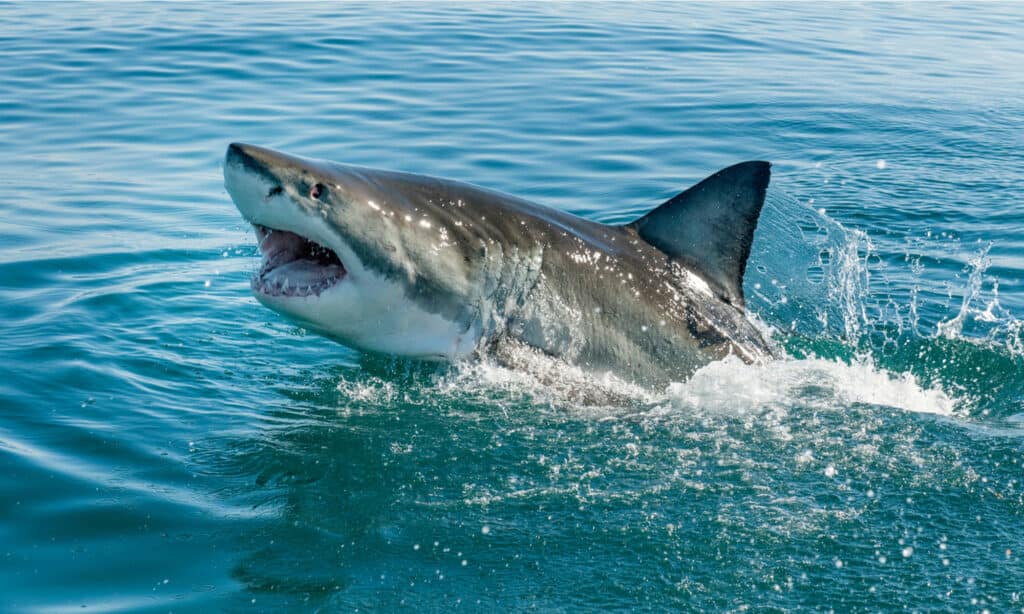
Great white sharks live longer compared to other fish species.
©Jayaprasanna T.L/Shutterstock.com
Originally, experts believed that the great white shark lived to be around 20 or so years old. However, fairly new research suggests that great white sharks can live anywhere from 50 to 70 years old or even longer. Additionally, great white sharks do not reproduce quickly and tend to grow very slowly.
In fact, compared to other fish species such as tuna or tiger sharks, great white sharks live a relatively long lifespan and they are thought to be the longest-living fish species on the planet today. For example, the Greenland shark, Somniosus microcephalus, can live up to 500 years! Unfortunately, with changes in climate, we might see changes in the lifespan of sharks.
How Common Is It for Fishermen to Catch Sharks Instead of Fish?
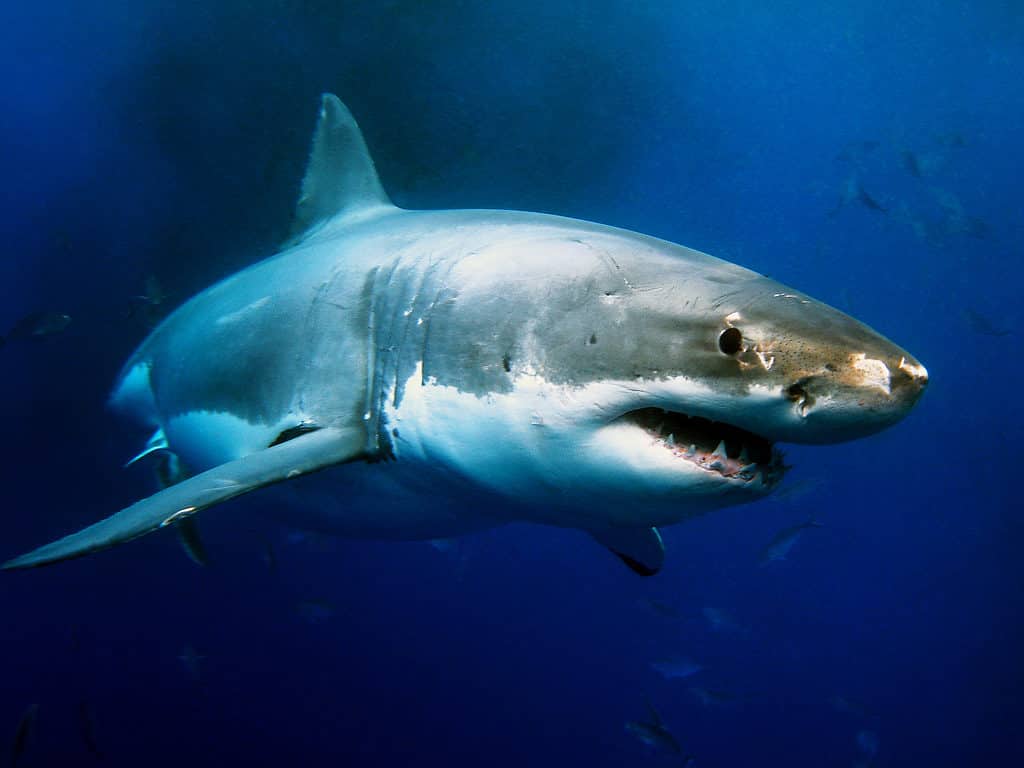
The incidence of fishermen catching sharks instead of intended fish varies depending on the region, fishing practices, and species of fish being targeted.
©iStock.com/Whitepointer
The incidence of fishermen catching sharks instead of intended fish varies depending on the region, fishing practices, and species of fish being targeted. In some areas, such as the Gulf of Mexico and the coasts of Florida and California, shark fishing is a common industry, and catching sharks is intentional. In other areas, such as the Mediterranean and the Indian Ocean, accidental catches of sharks are more common due to certain fishing practices.
Shark bycatch, or the unintentional capture of sharks while fishing for other species, is a major problem in many areas of the world. This can occur when sharks are attracted to the same bait or gear used to catch other fish, or when they become entangled in fishing nets. Bycatch can be detrimental to shark populations, as many sharks are slow to reproduce and have relatively low populations compared to other fish species.
Efforts are being made to reduce the incidence of shark bycatch, including the development of alternative fishing gear and practices, such as circle hooks and shark exclusion devices. Some fishing regulations also require the release of certain shark species if caught unintentionally.
Is this Normal Behavior for Sharks?
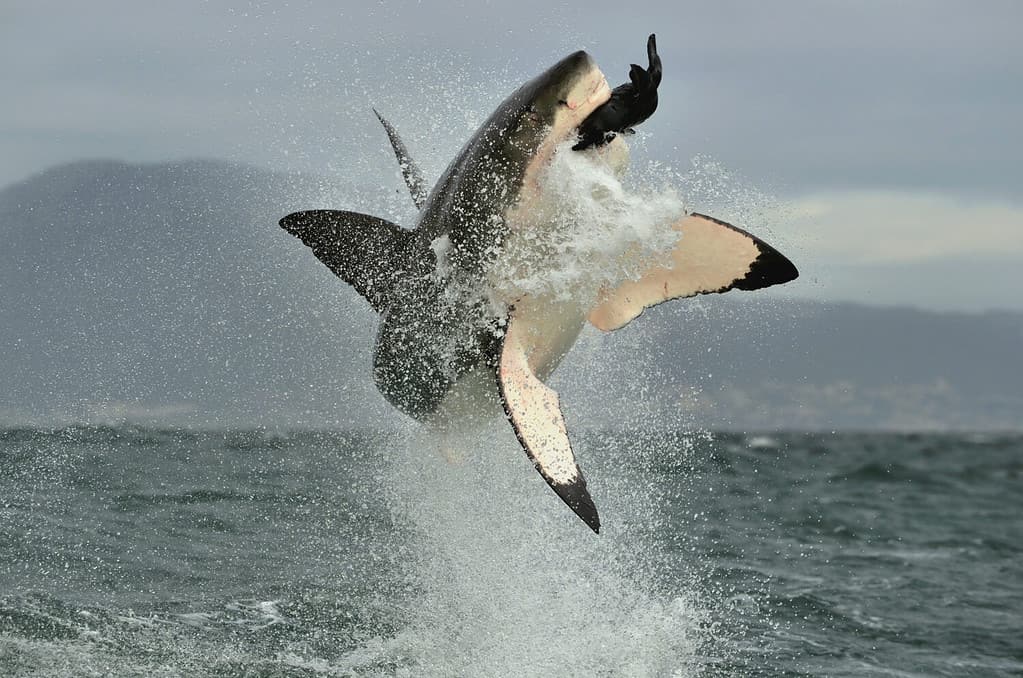
Sharks have no fear swimming up to big fishing boats and snatching the catch.
©Sergey Uryadnikov/Shutterstock.com
Sharks are predatory creatures and they can sometimes swallow the bait meant for fish in the ocean. Sharks have been known to show up near fishing boats, unafraid of humans, and snatch the catch right out from under the nose of the fisherman. This has happened a few times as fishermen and kids reel in a catch from a line, and the shark leaps and grabs it greedily right from the hook.
Even big fishing boats have fallen victim to sharks cutting their nets and snatching fish as they reeled it in.
In such cases, it is better to avoid confrontation and cut the line as soon as possible from a safe distance or be in real danger of your arm getting chopped off by their sharp teeth.
Thank you for reading! Have some feedback for us? Contact the AZ Animals editorial team.





